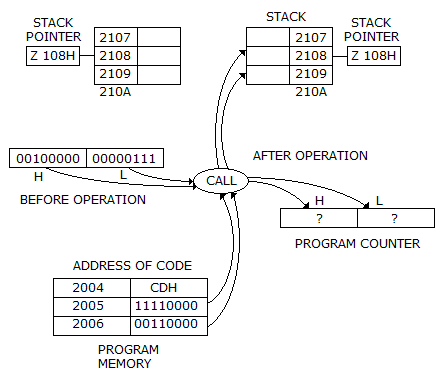ECE :: Digital Electronics
-
The circuit shown in figure converts

-
The microprograms provided by a manufacturer to be used on his microprogrammed computer are generally called
-
Out of multiplexer and demultiplexer, which has select inputs?
-
What is the direction of address bus?

-
Direct-memory-access channel facilitates data to move into and out of the system.
-
The basic circuit configuration for TTL resembles that of a
-
Assertion (A): Boolean expressions can be easily simplified using Karnaugh map.
Reason (R): Karnaugh map can be drawn for minterms as well as max terms.
-
In a flip flop which input determines the state to which output will transistion?


 Whatsapp
Whatsapp
 Facebook
Facebook

